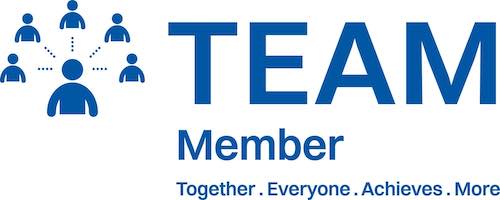Dealing With A Job Rejection

You’ve applied for that perfect job in your ideal company, and you have done everything possible to secure that interview, BUT you receive that dreaded contact saying, “you did not get the job!” – are any of us truly skilled in how to deal with the rejection and move forward in a positive way?
Generally, most of us find it hard to deal with rejection, let’s face it it’s never pleasant being told you’re not what we are looking for, as it will always beg the question WHY?
Remember there can be many reasons why you can be turned down for a role e.g., the company filled the role internally, the company may have decided not to create the job role due to internal changes, you may have been really close to another candidate, but needed slightly more experience. Or it may be that you weren’t the right fit for the company and therefore the company really wasn’t the right fit for you at this stage.
If you start believing you didn’t get the job because you are incapable of ever getting a job then it is important to look at it differently, as you will need to boost your confidence for the next job interview you attend, not have self-doubts.
HOW TO THINK AFTER A JOB REJECTION
Start by trying to see it as a fresh opportunity to do even better next time, perhaps think of it like the new year—each year we leave behind old regrets and look to improve ourselves for the next year. Consider what you could have done differently and work on those areas going forward – put your determined mindset into gear!
Also, it’s good to remember you are not alone, very few people get every job they apply for and why should you be any different? accepting this will help you both mentally and emotionally. Coming to grips with the possibility of rejection is part of the process and preparing for the possibility much easier in the long term.
Plus, once you let go of the thought you are guaranteed a positive outcome, you open yourself up to a world of other possibilities—other jobs, opportunities, and companies that could be an even better fit.
Another action to take is do your best to try not to over analyse the situation, it will drive you crazy replaying the interview repeatedly in your head, deliberating the possible reasons you received a rejection. Continued disappointment only serves to keep you stuck and the sooner you can accept it you will be able to apply for other roles and eventually get that dream job.
BUILD YOUR SELF ESTEEM LONG TERM

When you feel rejected, it is very easy to get into a pattern of downplaying your accomplishments and feeling like you’re not quite worthy – don’t let this become a pattern in your thought process, instead write a list of all the things you have achieved, and how you personally contributed to previous roles and overcame any obstacles, remind yourself of these every day. By recognising your strengths and ability to succeed in the face of challenges and difficult situations, is a simple exercise that can instantly shift you from feeling negative about your accomplishment to feeling great about your capabilities.
Remember, while a job rejection might seem like the end of the world, it’s really an opportunity to learn more about yourself and the job search process and improve for the future.
GET THE FEEDBACK YOU NEED TO MAKE A DIFFERENCE
It is essential to gain feedback from the interviewer as to why you were not suitable for the role, gaining constructive feedback is the best way to start the process of areas you may need to focus on for future job interviews and without this you will only be guessing.
Not all hiring managers will provide this, but a simple phone call or email can potentially give you a clearer idea of why you didn’t receive a job offer. There could be a good reason why you were overlooked, and it will at least put an end to any nagging doubts you may have. If it turns out there are gaps in your skillset at least you will know and can either seek to fill these gaps with additional courses or reconsider the type of roles you are applying for.

HOLD YOUR HEAD HIGH UP AND SEND A THANK YOU LETTER
It’s not an easy thing to do sending a thank-you email after a job rejection because part of you is still going through the thought process of why not me! However, it can help your career in the long run. If you potentially lost out to someone else by a small margin and that person doesn’t work out, they may contact you again to see if you are still interested. It is also a good opportunity to ask for feedback if you haven’t already received any as well as highlighting that although
you are disappointed to have not been offered the role, you are excited to see how the company develops and would like to be considered for any future opportunities that may become available.
By taking a few minutes out of your day to write this email, you will leave your interviewer with a positive impression of yourself and therefore increase your chances of receiving constructive feedback or even the possibility of being considered for another role in the future
YOU’LL COME BACK STRONGER

When you are recovering from a recent rejection it can be difficult to start applying for jobs again, however, if you have taken the time to process your emotions, work on your developmental areas and have learned to highlight your strengths – you’ll come back stronger and more motivated.
Focusing on your strengths and highlighting them in future interviews, you’ll be able to show employers why you’re the best candidate. Working on improving your interview technique and being more confident in yourself can only improve your changes.
By putting in th
e work to reboot your confidence and learn from your previous experience and feedback, future applications should be easier for you, giving you the best chance of succeeding.
PUT THE EFFORT IN AND THE RESULTS WILL COME

If applying for a job wasn’t difficult enough, receiving a rejection feels so much worse. However, what is important is how you react to that rejection and what you do after. This can determine your future approach to other opportunities.
So, take time to evaluate yourself, your emotions, and your skillset to ensure that you go into the next interview a stronger candidate than you did before, by not putting in the work and the time to regroup and come back better prepared and more motivated, you may risk more job rejections in the future, and nobody wants to face that.
Enhance your skills, review your interview techniques and work on your developmental areas. Fundamentally you are seeking a job and company that suits you and that you suit them, that is the winning combination. Rejections are for a reason and learning and growing from them, can only be a positive thing. So put the work in and you will see the results, and soon gain the ideal role for you.





